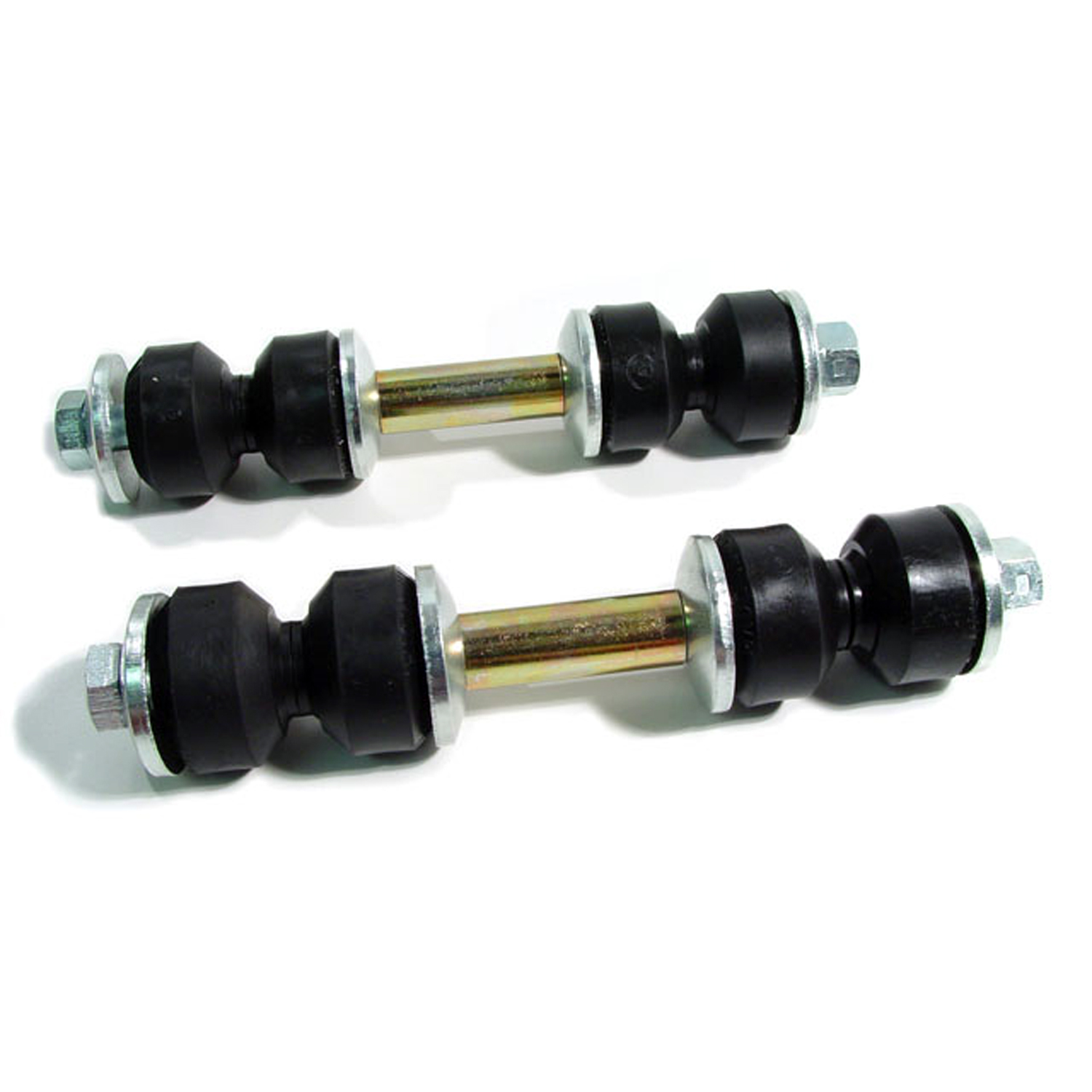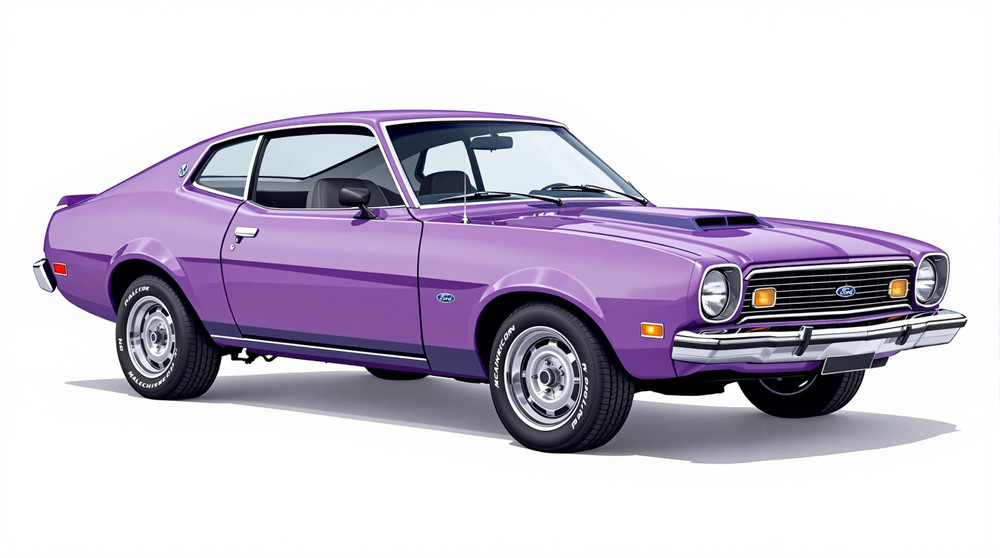Image of 1977 Ford Maverick, Note: These illustrations use artistic license and may differ from actual historical models.
Performance Metrics
Fundamental Metrics
Emotional Appeal
MMP Rating
| Engine Specifications | |
|---|---|
| Engine: | 200 CID I6, 250 CID I6, 302 CID V8 |
| Displacement: | 200-302 cubic inches |
| Horsepower: | 88-140 hp |
| Torque: | 133-239 lb-ft |
| Compression Ratio: | 8.0:1 - 8.4:1 |
| Ignition System: | Conventional breaker-point ignition system |
| Cooling System: | Liquid-cooled |
| Performance Specifications | |
| 0-60 Time: | Estimated 10-12 seconds |
| 1/4 Mile Time: | Estimated 17-19 seconds |
| Top Speed: | 100-110 mph |
| Transmission and Drive | |
| Drive Type: | Rear-wheel drive |
| Transmission Type: | 3-speed manual, 3-speed automatic |
| Fuel and Efficiency | |
| Fuel System Type: | Carburetor |
| MPG: | Estimated 15-20 mpg |
| Dimensions and Brakes | |
| Brakes: | Front disc, rear drum |
| Wheelbase: | 109.9 inches |
| Weight: | 2,800-3,100 lbs |
Note: Specifications for classic cars are given to the best of our ability, considering the limited and variant data available.
Unveiling the Understated Icon: The 1977 Ford Maverick
The year 1977 saw the Ford Maverick firmly established as a staple on American roads, offering a blend of practicality and understated charm. Born from the ambition to create a compact car that could rival the imports, the Maverick was Ford's answer to an era of fuel consciousness and economic pragmatism. This model year held its ground in a time when automotive design was shifting gears towards efficiency without sacrificing the American car spirit. A notable moment for the '77 Maverick was its role as a bridge between the muscle cars of yesteryear and the forthcoming era of downsized vehicles.
Design and Innovation: A Study in Subtlety
The exterior of the 1977 Ford Maverick was a study in subtlety, with clean lines and a no-nonsense silhouette that exuded a sense of reliability. Its long hood and short rear deck hinted at sportiness, while remaining true to its compact roots. Inside, the cabin was straightforward with an emphasis on functionality. Materials were durable, if not luxurious, reflecting the vehicle's working-class ethos. Technologically, it wasn't a pioneer but offered solid engineering that had been refined over its production years since its debut in 1970. Color options for the Maverick ranged from earthy tones to more vibrant hues, with choices like "Dark Jade" and "Bright Red" catching buyers' eyes. The two-door sedan was particularly popular, striking a balance between sporty appeal and practicality. The Grabber trim package added bold graphics and trim enhancements that resonated with those looking for extra flair.
Historical Significance: The Compact Contender
The 1977 Ford Maverick's impact on automotive design may not have been revolutionary, but it played a crucial role in Ford's lineup during a transformative period for the industry. It stood out by not trying to stand out, offering a reliable and affordable option for consumers who were increasingly conscious of fuel economy and running costs. Its longevity in production is testament to its success in meeting market demands without sacrificing its identity.
Performance and Handling: A Balanced Act
Performance-wise, the '77 Maverick was no slouch for its category. With options like the 302-cubic inch V8 engine, it could deliver respectable acceleration figures, reaching 0-60 mph in a little over 10 seconds—a commendable feat for a compact of that era. Handling was predictable if not sporty; it managed bumps with composure and maintained poise on windy roads. Drivers enjoyed a visceral connection with their Mavericks; the engine's rumble was reassuringly present without being obtrusive, and the ride struck a balance between comfort and responsiveness.
Ownership Experience: Versatile and Dependable
The 1977 Maverick found its niche as an all-rounder—equally at home being used as a daily driver or as an occasional show car. Its simplicity lent itself to ease of maintenance, making it an accessible choice for DIY enthusiasts. Reliability was one of its strong suits, though some components showed wear typical of vehicles from this period.
Fun Facts: The Maverick's Legacy
Despite its understated nature, the Maverick has some interesting trivia attached to it. For instance, certain special editions like the "Stallion" are sought after by collectors for their unique styling cues. While not known for breaking speed records, it did set sales records in its initial years. Criticisms often centered around its conservative approach at a time when competitors were pushing design boundaries.
Collector's Information: Assessing Value and Rarity
Today, values for well-preserved or restored Mavericks can vary widely but generally hover in the affordable range for classic car collectors—anywhere from $5,000 to $20,000 depending on condition and originality. Production numbers were substantial, which means rarity isn't typically an issue; however, specific trims like the aforementioned Grabber or Stallion are less common finds. As interest in '70s vehicles grows among collectors, Mavericks have seen modest appreciation over time.
Conclusion: Embracing Practicality with Pride
The 1977 Ford Maverick may not have been designed to turn heads like some of its contemporaries; instead, it earned respect through reliability and practicality—qualities that have cemented its place in automotive history. Whether you're an enthusiast drawn to this era or someone who appreciates straightforward American engineering, the Maverick is worthy of admiration. Its legacy is one of unpretentious dependability—a true reflection of the era it thrived in.
1977 Ford Maverick Catalog of Parts
 1977 Ford Maverick Front Stabilizer End Repair Kit-BNK 22Front Stabilizer End Repair Kit. 22-piece set for two stabilizer bars. Contains all rubber bushings, washers, bolts and nuts, enough for one front end. Set
1977 Ford Maverick Front Stabilizer End Repair Kit-BNK 22Front Stabilizer End Repair Kit. 22-piece set for two stabilizer bars. Contains all rubber bushings, washers, bolts and nuts, enough for one front end. SetWhy Choose Metro?
For over 100 years, Metro Moulded Parts has been the pinnacle of quality in classic car restoration parts. Our commitment to precision and authenticity in every component ensures a perfect fit and an OEM-level appearance.
- Expert Craftsmanship & Quality: Each part is a testament to our dedication to reliability and perfection, crafted from original designs and thoroughly tested.
- Advanced Technology: We use cutting-edge techniques to create flawless, long-lasting parts that surpass others in performance.
- SuperSoft Sponge – The Ultimate Door Seal: Not only are our door seals 30% softer than competitors', but they're also guaranteed to never leak. They effectively reduce wind and road noise, enhancing your classic car's comfort and driving experience.
- Proudly American: Our parts are a product of American craftsmanship, made in the USA with a spirit of excellence and heritage.
- Unrivaled Warranty: We back our products with a 30-year industry-leading warranty, a testament to our confidence in their quality.
Join us in preserving the legacy of classic cars with parts that are crafted for perfection, not just made.

